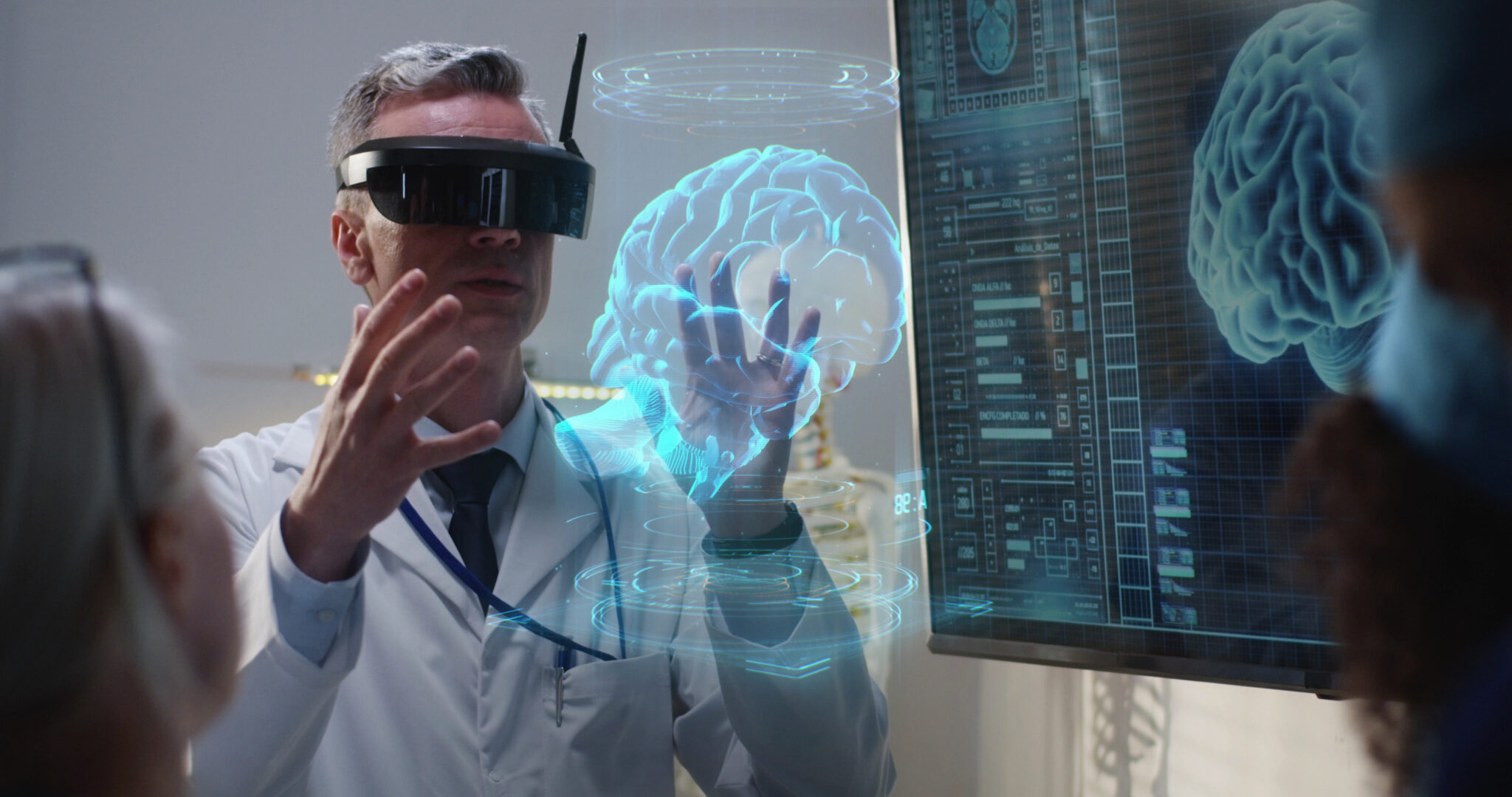The Medical Metaverse: A New Frontier

Talk of virtual realities and alternative digital realms has been generating excitement and expectations for decades. The technology has finally gone beyond the stage of being little more than an enhanced video game, and now has the power to enhance and disrupt multiple fields. Its potential uses in medicine range from the training of specialist personnel and improving research through to the actual delivery of healthcare.
Coined by Neal Stephenson in his prescient 1992 sci-fi novel Snow Crash, the metaverse is a virtual-reality platform through which users can interface with each other and digital environments via the internet.
In late 2021, Mark Zuckerberg demonstrated how important a part he envisioned the concept would play in the digital future by changing the name of Facebook’s parent company to Meta. It should be noted that investors are yet to fully endorse Zuckerberg’s vision; Meta stock has risen from the lows of late last year but remains around 50% below its pre-name change peak.
Speed and efficiency to drive the medical metaverse
Rapid growth is predicted for the augmented and virtual reality healthcare market in a report from Precedence Research released last year. From $2.3 billion in 2021, the sector is set to reach $19.6 billion in 2030, with Asia-Pacific set for the fastest expansion.
Many areas of medical research should become cheaper and more efficient through utilisation of the metaverse. Clinical trials and other studies on certain types of new medicines and treatments carried out on larger scales and with broader ranges of subjects through the metaverse have the potential to lower costs and raise effectiveness compared to current methods.
Researchers at Japan’s Chugai Pharmaceutical are already using specialised software to conduct drug discovery in the metaverse by leveraging 3D models to study down to atomic-level details. This is allowing the creation and testing of novel compounds faster than previously possible, opening the door for faster development and shorter time to market.
Sharing and caring
Data sharing between researchers and academics from different entities and countries will also be enhanced via the new technology.
Collaboration such as sharing data and real-world experiences will also be one way through which the metaverse will contribute to better education and training for doctors, nurses and medical technicians. Imaginative use of the new tech should deliver more engaging ways of learning, in turn leading to better retention of study material and improved patient outcomes.
The metaverse also provides a safe environment for medical professionals to hone their skills on virtual patients in everything from intricate surgical procedures and diagnostic protocols to challenging interpersonal interactions, before they are let loose on real live human beings.
Working remotely
Consultations are already being delivered remotely via telemedicine, the uptake of which was boosted around the world by the pandemic. Use in Japan remains relatively low compared to many other mature economies, but the metaverse promises to take remote healthcare to the next level wherever it is deployed.
Through providing consultations to patients in remote areas, or regions where particular specialists are in short supply, the metaverse can contribute to addressing the gaps caused by Japan’s large ageing rural population and the workforce shortages caused by its demographic shifts.
Virtual/augmented reality can also be used to create individually tailored rehabilitation programmes or environments where people can encounter and overcome anxieties and phobias. Online therapy has flourished in recent years, another treatment method that can significantly benefit from the upgrade to a fully immersive interactive experience.
Threats and opportunities
Similar to other elements of the shift to a digital world, there are issues of privacy, safety and access when it comes to the metaverse. With medical records and other data shared through the new virtual environments, come the risks of cyber-attacks and leaks. Additionally the so-called digital divide, the fact that not everyone possesses the technology to access the metaverse, must also be recognised in healthcare provision. Without such considerations, the advance of this promising tech could exacerbate rather than narrow existing healthcare disparities.
As the use of the medical metaverse expands, as well as healthcare professionals versed in its use, there will be a growing need for software engineers and specialist technicians to develop and maintain the ecosystem that will grow around it. This will include developers who can create virtual medical environments and tools, along with those who can collect and analyse the new streams of data it will generate.
By: Gavin Blair
We are currently looking for
-Head of RA
-Head of R&D
-Data Science Manager
-Cloud Experts
-DX Manager
-Application Manager
-QA Expert
-Medical Information Expert
-PMS
-Corporate Communication Manager
-Process Excellence Manager
To find out more about hot roles in healthcare and elsewhere please contact us at +81-3-5962-5888 or email us at info@slate.co.jp

